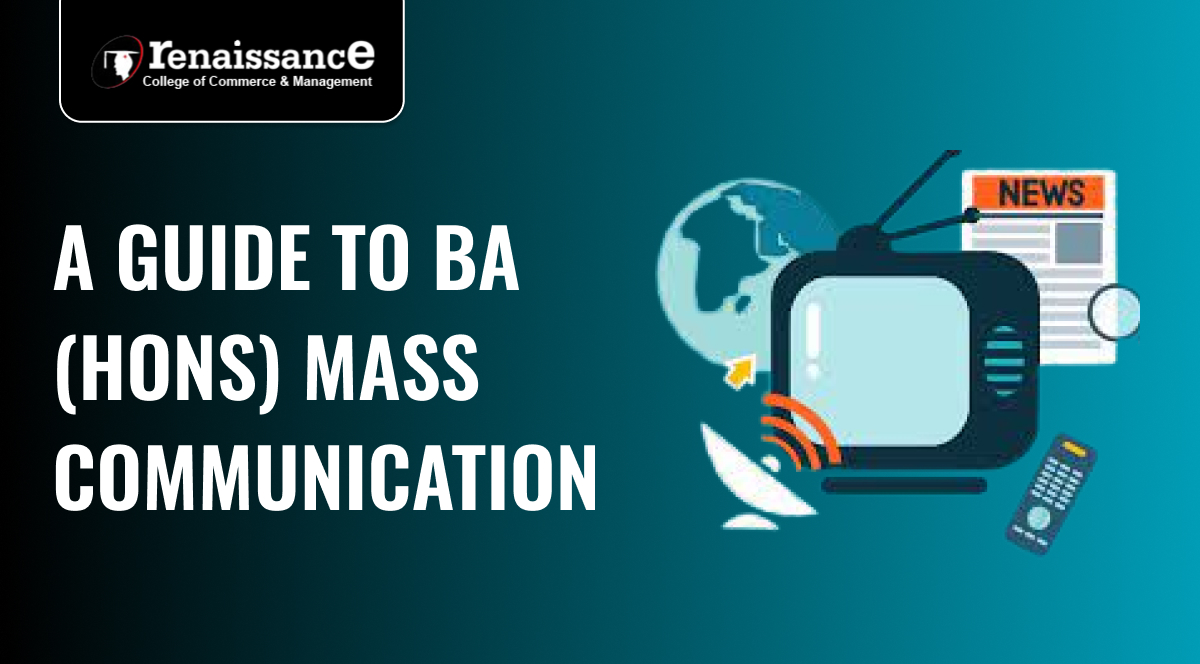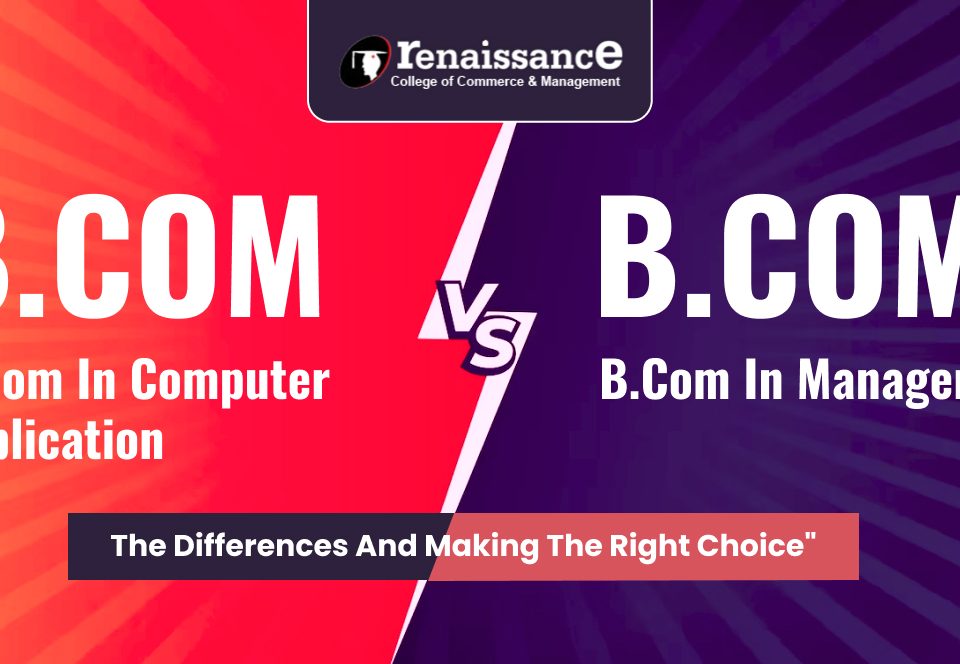A Guide to BA (Hons) Journalism & Mass Communication Course
I. Introduction
In today’s fast-paced and interconnected world, effective communication has become an indispensable skill. The BA (Hons) Mass Communication course equips students with a comprehensive understanding of communication theories, strategies, and practical skills. However, bridging the gap between theory and practice is crucial for students to truly excel in their careers.
This blog serves as a guide for BA (Hons) Mass Communication students, providing valuable insights on how to navigate the journey from theory to practice. It explores the importance of applying theoretical knowledge in real-world scenarios, acquiring practical skills, connecting with industry professionals, and preparing for the job market.
By understanding the significance of translating theory into practical applications, students can unleash their full potential and make a meaningful impact in the field of mass communication. Join us as we delve into the various aspects of this transformative journey, empowering aspiring communication professionals to thrive in their careers.
II. Understanding the Theoretical Foundation
A solid theoretical foundation forms the bedrock of any discipline, and mass communication is no exception. As a BA (Hons) Mass Communication student, it is crucial to grasp the core concepts and theories that underpin the field.
- Core Concepts:
- Define mass communication and its role in society.
- Explain the key components of the communication process (sender, message, channel, receiver, feedback).
- Discuss the various forms of mass media (print, broadcast, digital) and their impact on communication dynamics.
- Theoretical Frameworks:
- Explore the agenda-setting theory and its influence on shaping public opinion.
- Introduce the cultivation theory and its examination of the long-term effects of media exposure.
- Discuss the uses and gratifications theory, focusing on how individuals actively seek and use media for specific needs.
- Highlight the social cognitive theory and its emphasis on observational learning and media effects.
- Communication Models:
- Introduce the linear model of communication, emphasizing the one-way flow of information.
- Discuss the transactional model of communication, highlighting the interactive nature of communication as an ongoing process.
- Explore the cultural model of communication, recognizing the influence of cultural contexts on meaning-making.
Understanding these theoretical foundations provides a framework for analyzing and interpreting the complex dynamics of mass communication. It enables students to critically evaluate media messages, understand audience behaviors, and develop effective communication strategies.
By immersing themselves in the theoretical aspects of mass communication, BA (Hons) students gain a solid grounding that will serve as a springboard for their practical endeavors. The next section will delve into the application of these theories in real-world scenarios, bridging the gap between theory and practice.
Applying Theory in Real-world Scenarios
While understanding the theoretical foundations of mass communication is essential, it is equally crucial to apply these theories in real-world scenarios. This section explores the practical applications of theories, demonstrating how they come to life and contribute to effective communication strategies.
- Case Studies:
- Present case studies highlighting the application of communication theories in real-world campaigns or initiatives.
- Analyze how theories such as agenda-setting, cultivation, or uses and gratifications have been employed to shape public perception or influence behavior.
- Explore successful examples from various industries, including advertising, public relations, journalism, and digital media.
- Audience Analysis:
- Discuss the importance of audience analysis in crafting tailored communication strategies.
- Explore how theories of audience reception and media effects help understand audience behaviors, preferences, and responses.
- Provide practical tips and methods for conducting audience research, including surveys, focus groups, and social media analytics.
- Message Design:
- Highlight the role of message design in effective communication.
- Discuss how theories of persuasion, semiotics, and framing can be applied to create impactful messages.
- Explore the use of storytelling, visual elements, and emotional appeals to engage and resonate with the target audience.
- Media Planning and Channel Selection:
- Discuss the significance of media planning in reaching the intended audience.
- Explore theories of media effects and media ecology to inform strategic media selection.
- Address considerations such as reach, frequency, media demographics, and channel integration in the planning process.
By examining how theories translate into practical applications, BA (Hons) Mass Communication students gain a deeper understanding of the power of communication in real-world contexts. This knowledge equips them with the skills necessary to design and implement effective communication campaigns, fostering meaningful connections with diverse audiences. The next section will delve into the acquisition of practical skills, enabling students to bridge the gap between theory and practice even further.
Acquiring Practical Skills
In addition to understanding the theoretical foundations of mass communication, it is crucial for BA (Hons) Mass Communication students to acquire practical skills that allow them to translate theory into action. This section focuses on the development of essential skills that empower students to excel in their professional endeavors.
- Writing and Editing Skills:
- Emphasize the importance of effective written communication in various media contexts.
- Provide guidance on honing writing skills for different formats such as news articles, press releases, social media posts, and scripts.
- Highlight the significance of editing and proofreading to ensure accuracy and clarity in written content.
- Digital Media Literacy:
- Explore the role of digital media in mass communication.
- Discuss the importance of staying up-to-date with emerging digital trends, platforms, and tools.
- Provide practical tips on leveraging social media, content management systems, analytics, and multimedia storytelling techniques.
- Visual Communication:
- Recognize the power of visual elements in mass communication.
- Introduce the basics of graphic design, including principles of layout, typography, and color theory.
- Discuss the use of visual storytelling, infographics, and multimedia elements to enhance communication effectiveness.
- Research and Analysis:
- Highlight the significance of research in informing communication strategies.
- Discuss qualitative and quantitative research methods used in the field of mass communication.
- Provide guidance on data collection, analysis, and interpretation to support evidence-based decision-making.
- Interpersonal and Teamwork Skills:
- Emphasize the importance of effective interpersonal communication in professional settings.
- Discuss strategies for building and maintaining relationships with colleagues, clients, and stakeholders.
- Highlight the value of collaboration and teamwork in executing successful communication projects.
- Technical Skills:
- Introduce students to industry-standard software and tools relevant to mass communication, such as video editing software, content management systems, and analytics platforms.
- Provide resources and opportunities for hands-on learning and practice with these tools.
By acquiring these practical skills, BA (Hons) Mass Communication students develop a well-rounded skill set that enables them to excel in diverse roles within the field. The next section will focus on connecting with industry professionals, providing students with valuable networking opportunities to further enhance their practical knowledge and career prospects.
Connecting with Industry Professionals
Building a strong network of industry professionals is vital for BA (Hons) Mass Communication students to gain insights, learn from experienced practitioners, and create opportunities for their future careers. This section explores the importance of connecting with industry professionals and provides guidance on effective networking strategies.
- Mentorship and Guest Lectures:
- Highlight the benefits of mentorship programs and guest lectures organized by the course or department.
- Discuss how mentorship can provide valuable guidance, industry knowledge, and career advice.
- Encourage students to actively participate in guest lectures to learn from professionals’ experiences and broaden their perspectives.
- Internships and Industry Placements:
- Emphasize the significance of internships and industry placements in gaining practical experience.
- Discuss how internships provide opportunities to work alongside professionals and build valuable connections.
- Provide guidance on finding and applying for internships relevant to the student’s interests and career goals.
- Professional Associations and Events:
- Introduce students to professional associations and organizations in the field of mass communication.
- Highlight the benefits of joining these associations, such as access to industry resources, networking events, and conferences.
- Encourage students to actively participate in industry events, workshops, and conferences to network with professionals and stay updated on industry trends.
- Online Networking:
- Explore the importance of online networking platforms for connecting with industry professionals.
- Provide guidance on creating a professional online presence through platforms such as LinkedIn or industry-specific forums.
- Discuss strategies for engaging with professionals, initiating conversations, and showcasing relevant skills and interests.
- Informational Interviews:
- Explain the concept of informational interviews and their value in gaining industry insights.
- Encourage students to reach out to professionals for informal conversations to learn about their career paths, industry trends, and advice.
- Provide tips on conducting informational interviews professionally and making a positive impression.
By actively engaging with industry professionals through mentorship, internships, associations, events, and online networking, BA (Hons) Mass Communication students can establish valuable connections and learn from experienced practitioners. These connections can open doors to internships, job opportunities, and collaborations, further bridging the gap between theory and practice. The next section will focus on preparing students for the job market and enhancing their employability in the field of mass communication.
Preparing for the Job Market
As BA (Hons) Mass Communication students near the completion of their studies, it is crucial to equip themselves with the necessary skills and strategies to thrive in the competitive job market. This section provides guidance on preparing for the job market and enhancing employability within the field of mass communication.
- Self-Assessment and Personal Branding:
- Encourage students to assess their skills, strengths, and interests to identify their career goals within mass communication.
- Discuss the importance of personal branding and crafting a professional image that aligns with their career aspirations.
- Provide guidance on developing a compelling personal brand statement and an impressive online portfolio.
- Networking and Industry Connections:
- Reinforce the significance of networking and maintaining connections with industry professionals.
- Encourage students to leverage their network for job opportunities, referrals, and industry insights.
- Provide tips on nurturing relationships, attending industry events, and actively engaging with professional associations.
- Resume and Cover Letter:
- Provide guidance on crafting a targeted resume and cover letter that highlight relevant skills and experiences.
- Emphasize the importance of tailoring application materials for each position and showcasing accomplishments.
- Offer tips on formatting, content organization, and incorporating key industry-related keywords.
- Portfolio Development:
- Discuss the importance of building a comprehensive and visually appealing portfolio.
- Encourage students to include a variety of work samples, such as writing samples, campaign materials, multimedia projects, and relevant internships.
- Provide guidance on organizing the portfolio, writing effective descriptions, and showcasing a range of skills and experiences.
- Interview Preparation:
- Offer guidance on preparing for job interviews, including researching the company, practicing common interview questions, and developing compelling responses.
- Provide tips on presenting oneself professionally, showcasing enthusiasm, and demonstrating knowledge of industry trends.
- Encourage students to participate in mock interviews or seek feedback from mentors to enhance their interview skills.
- Continuous Learning and Professional Development:
- Emphasize the importance of lifelong learning and staying updated with industry trends and technologies.
- Encourage students to pursue additional certifications, workshops, or courses to enhance their skills and marketability.
- Discuss the value of professional development opportunities offered by industry associations or organizations.
By following these strategies, BA (Hons) Mass Communication students can position themselves as competitive candidates in the job market. They will be equipped with the necessary tools to showcase their skills, experiences, and passion for mass communication, increasing their chances of securing fulfilling careers in the field.
Alumni Success Stories
One of the most inspiring aspects of the BA (Hons) Mass Communication course is the success stories of its alumni. This section highlights the achievements and career trajectories of former students, showcasing how the course has shaped their professional journeys and the impact they have made in the field of mass communication.
- Featured Alumni Profiles:
- Select a diverse range of alumni who have excelled in various sectors within mass communication, such as journalism, public relations, advertising, broadcasting, or digital media.
- Provide brief profiles of these alumni, including their educational background, notable achievements, and current roles.
- Highlight the unique career paths and contributions of each individual, demonstrating the versatility and impact of the BA (Hons) Mass Communication course.
- Career Trajectories:
- Discuss the career trajectories of selected alumni, highlighting their progression from entry-level positions to leadership roles.
- Explore how the knowledge, skills, and experiences gained through the BA (Hons) Mass Communication course have influenced their professional growth.
- Share anecdotes and success stories that exemplify the impact these alumni have made in their respective industries.
- Alumni Insights and Advice:
- Include quotes or short interviews with alumni, capturing their reflections on the course and its impact on their careers.
- Ask alumni to share advice and tips for current students on maximizing their learning experience and seizing opportunities.
- Encourage alumni to offer insights into industry trends, emerging technologies, and evolving communication practices.
By showcasing the accomplishments of BA (Hons) Mass Communication alumni, this section provides inspiration and motivation for current students. It demonstrates the wide range of career paths available and the potential for success in the field. Alumni success stories serve as a testament to the value and impact of the course, reinforcing students’ confidence in their own abilities and future prospects.
Conclusion
The journey from theory to practice in the BA (Hons) Mass Communication course is an exhilarating one, filled with learning, growth, and opportunities. Throughout this blog, we have explored the importance of bridging the gap between theory and practice, equipping students with the knowledge and skills necessary to excel in the field of mass communication.
From understanding the theoretical foundations to applying them in real-world scenarios, BA (Hons) Mass Communication students have gained a comprehensive understanding of communication dynamics. By acquiring practical skills, connecting with industry professionals, and preparing for the job market, they have enhanced their employability and set themselves up for successful careers.
The inspiring success stories of alumni have demonstrated the impact of the course, serving as beacons of inspiration for current students. The knowledge gained, combined with the guidance of experienced practitioners, has empowered graduates to make meaningful contributions in various sectors of mass communication.
As BA (Hons) Mass Communication students embark on their own journeys, we encourage them to embrace the opportunities, challenge themselves, and continue to learn and grow. The field of mass communication is constantly evolving, and by staying curious, adaptable, and connected, they can carve their own paths and create a positive impact in the industry.
Remember, the transition from theory to practice is not a destination but a continuous process of refinement and growth. The skills, experiences, and connections gained throughout the course will serve as lifelong assets, empowering graduates to navigate the ever-changing landscape of mass communication.
So, seize the opportunities, embrace the challenges, and let your passion for communication shine. Your journey from theory to practice starts here, and the world is waiting for your unique voice and contributions in the field of mass communication.
Frequently Asked Questions (FAQ)
What is BA (Hons) Mass Communication?
BA (Hons) Mass Communication is an undergraduate program that focuses on the study of communication theories, strategies, and practical skills in the field of mass communication. It provides students with a comprehensive understanding of various aspects of communication, including media, journalism, advertising, public relations, and digital media.




